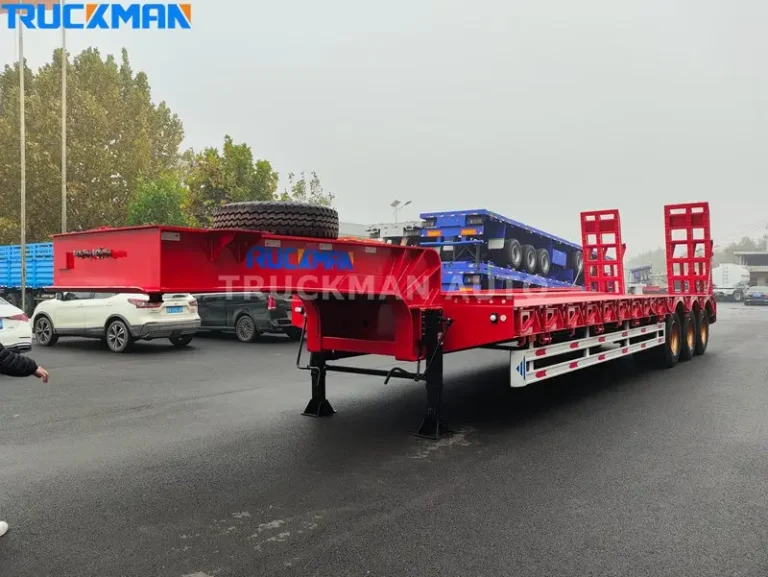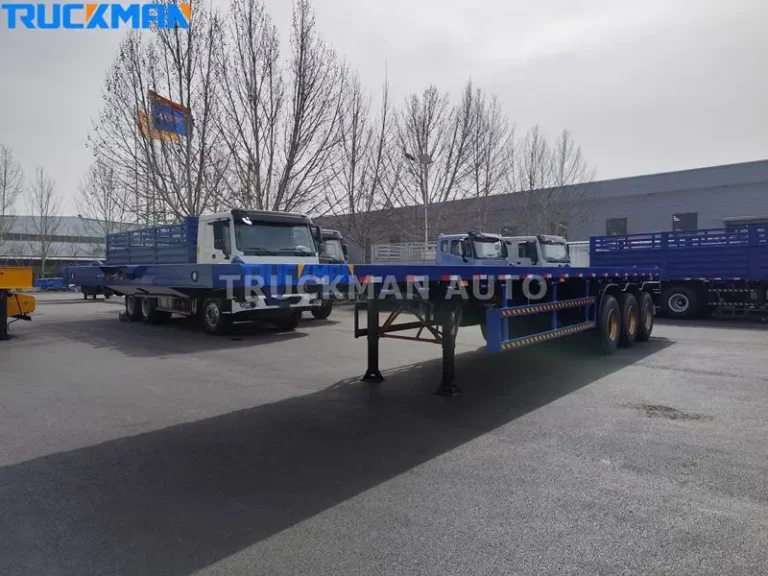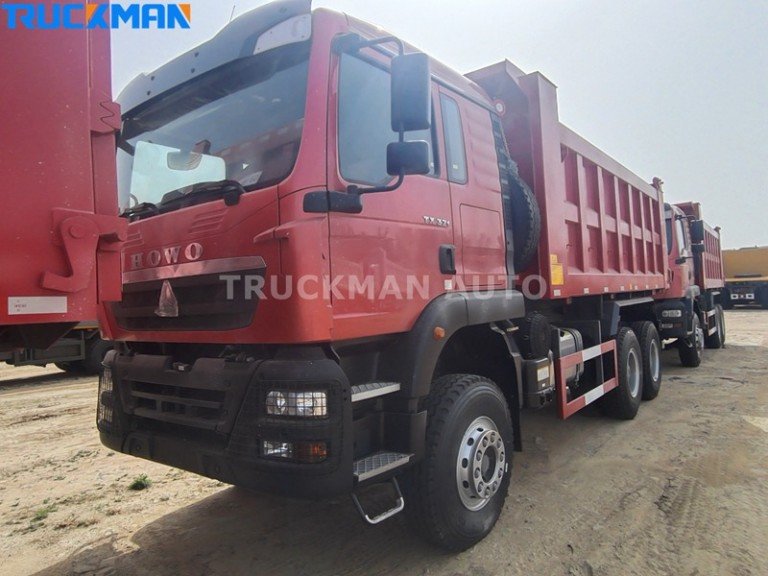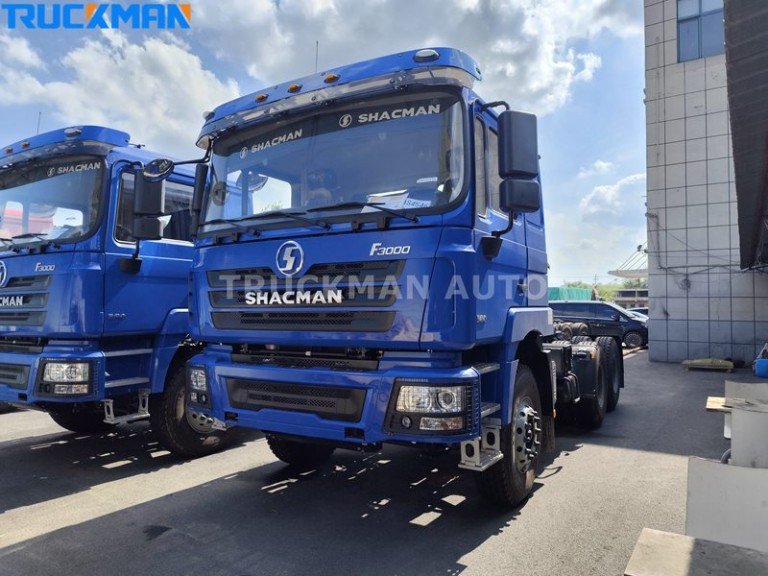The fuel tanker trailer is an important carrier for logistics. This is especially true for the transport of hazardous chemicals. It has an irreplaceable role. TRUCKMAN makes fuel tanker trailers. They have rich experience in production and design. They can customize the trailers to fit customers’ needs. This gives customers high-quality products and helps them cut costs.
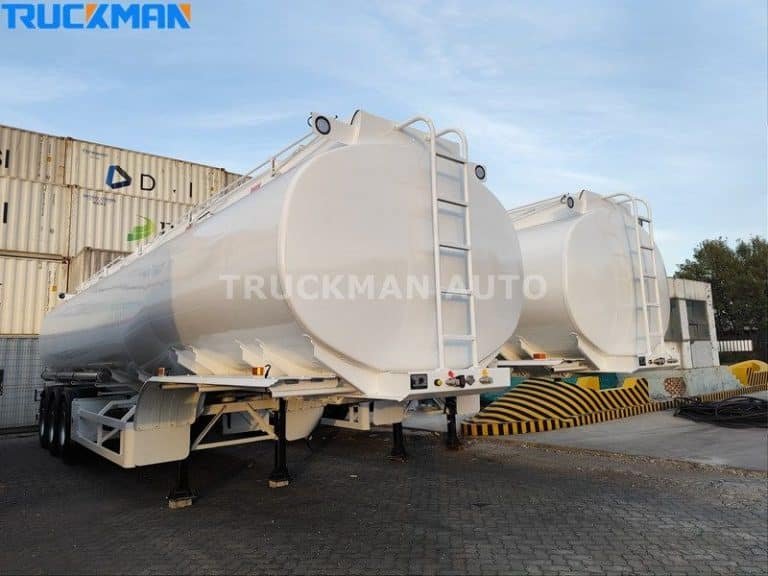
Table of Contents
Structure Of Fuel Tanker Trailer
The fuel tanker trailer can be divided into two parts, the tanker body and chassis.
Material of each part: The tanker body material adopts carbon steel, aluminum, and stainless steel. Aluminum alloy tanks are lighter and more fuel-efficient. But, they are much more expensive to buy. The chassis adopts the Q355 manganese steel, the steel is strong and durable for off-road use.
The shape of the tanker body: The shape is divided into oval or square round tanks, which can contain 1-4 kinds of oils. For the same size tank, a square round tank has a significantly larger volume than an oval tank. However, the oval tanker trailer has an even load distribution. Its lower disc is solid and tough. This saves energy when climbing and makes it safer and more reliable.
Wave plate function: It is an important component in the design of fuel tanker trailers. The plate reduces liquid fluctuation and impact in the tank. It makes the vehicle more stable.
Key Factors In Fuel Tanker Trailer Design
Material optional: The tanker body can optional carbon steel and aluminum alloy material. The tanker body is made of an aluminum alloy. It is light and has a lower center of gravity. So, it is safer and more fuel-efficient. Moreover, the aluminum tank has better thermal and electrical properties. It is easy to release static electricity. So, when the tank hits things, it won’t make sparks. This reduces the chance of fire. Carbon steel is relatively strong and hard, offering better wear resistance and compression strength. And its procurement cost is also low.
Safety equipment: The main safety equipment for a fuel tanker trailer includes the subsea valve, manhole cover, emergency cutoff valve, built-in breather valve, anti-overflow probe, and oil and gas recovery valve. These devices can greatly improve trailer safety and prevent major accidents.
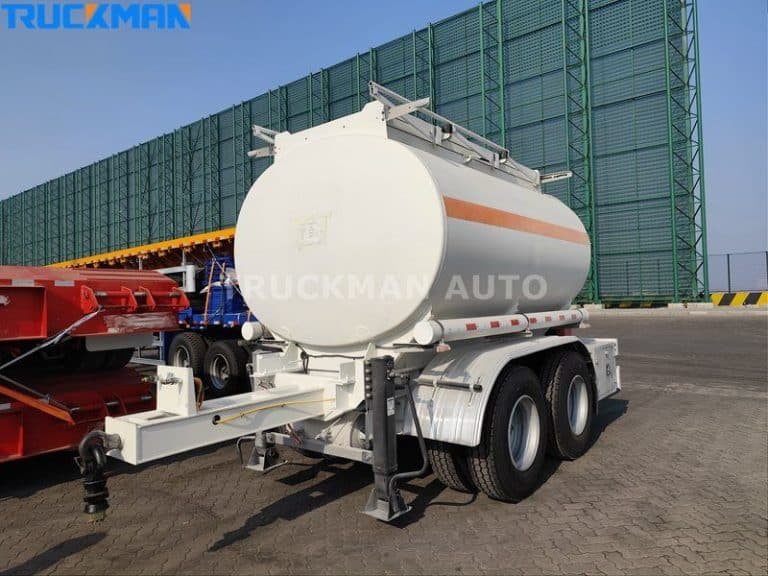
Importance Of Quality And Reliability
Accessories are key to a trailer. They play a vital role in its operation and maintenance. During the use of a trailer, damage and part replacement are inevitable. So, choosing high-quality trailer parts is vital. They ensure the trailer’s safety, stability, and economy. Truckman insists on using famous and durable brands in our fuel tanker trailer, like FUWA axles, TRIANGLE tires, JOST support legs, and tractor pins. These parts ensure the smooth operation of the trailer and make it last long. Many customers recognize this!
Customization And Flexibility Of Fuel Tanker Trailer
TRUCKMAN fuel tanker trailer is a customized semi-trailer. It has many customized configurations, including several tires, type, model, type, top speed, saddle load, and wheelbase. This makes it ideal for long-distance transport of liquid substances. Our TRUCKMAN adheres to the customer-oriented, to meet customer needs, and can provide a variety of models of fuel tanker trailers.
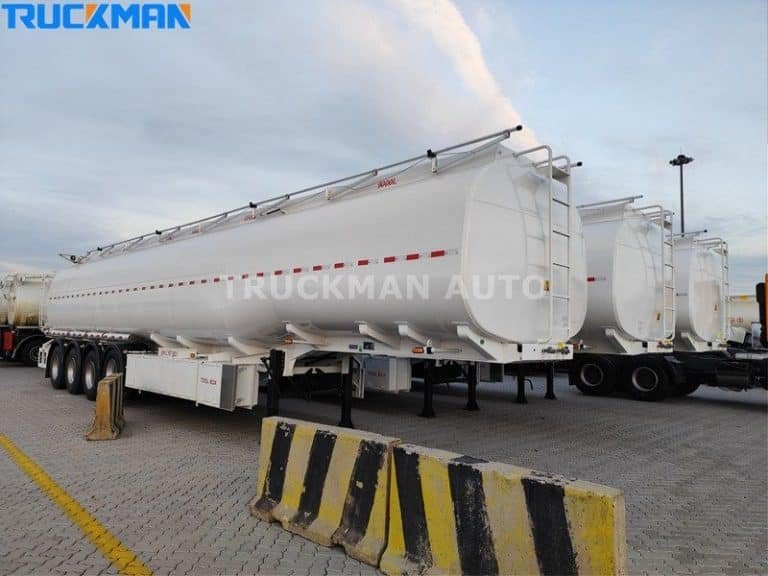
Fuel Tanker Trailer Cost Consideration
The cost of a fuel tanker trailer depends mainly on tank material. Aluminum is much more expensive than carbon steel. Fittings brand, like common brands price is 1/3 of the famous brand fittings, but the service life is very short. The capacity of the tank will also affect the price, the larger the tank capacity, the higher the price. A new fuel tanker trailer costs more than a used one. But, its maintenance costs are lower and it’s less prone to problems. It can also be sold for a second time and has a low depreciation rate.
Fuel Tanker Trailer Maintenance And Operating Costs
The maintenance and operating costs of a brand-new fuel tanker trailer are stable. This reduces investment risk for entrepreneurs. Major costs include the following:
Fuel cost: Depends on factors such as fluctuations in oil prices and vehicle mileage. For a truck that consumes 30 liters of fuel per 100 kilometers, the fuel cost per kilometer is about $2 per kilometer.
Personnel costs: The cost includes wages for drivers, porters, and others. It varies by region, work experience, and skill level.
Repair and maintenance costs: Including vehicle repair, maintenance, insurance, and other costs.
Other costs: Including parking fees, road and bridge tolls, catering fees, etc.
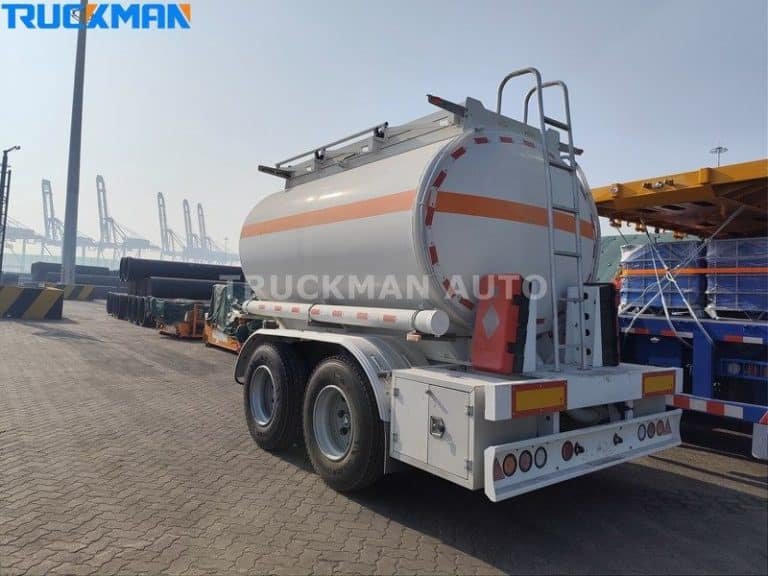
Summary
When choosing a tanker trailer, consider its structure, design, and maintenance. Also, think about its cost, custom items, and accessory brands. Try to pick a good manufacturer like TRUCKMAN. They have a lot of experience in making and designing fuel tanker trailers. This way you can be sure that you are buying a fuel tanker trailer of good quality and at a good price!

